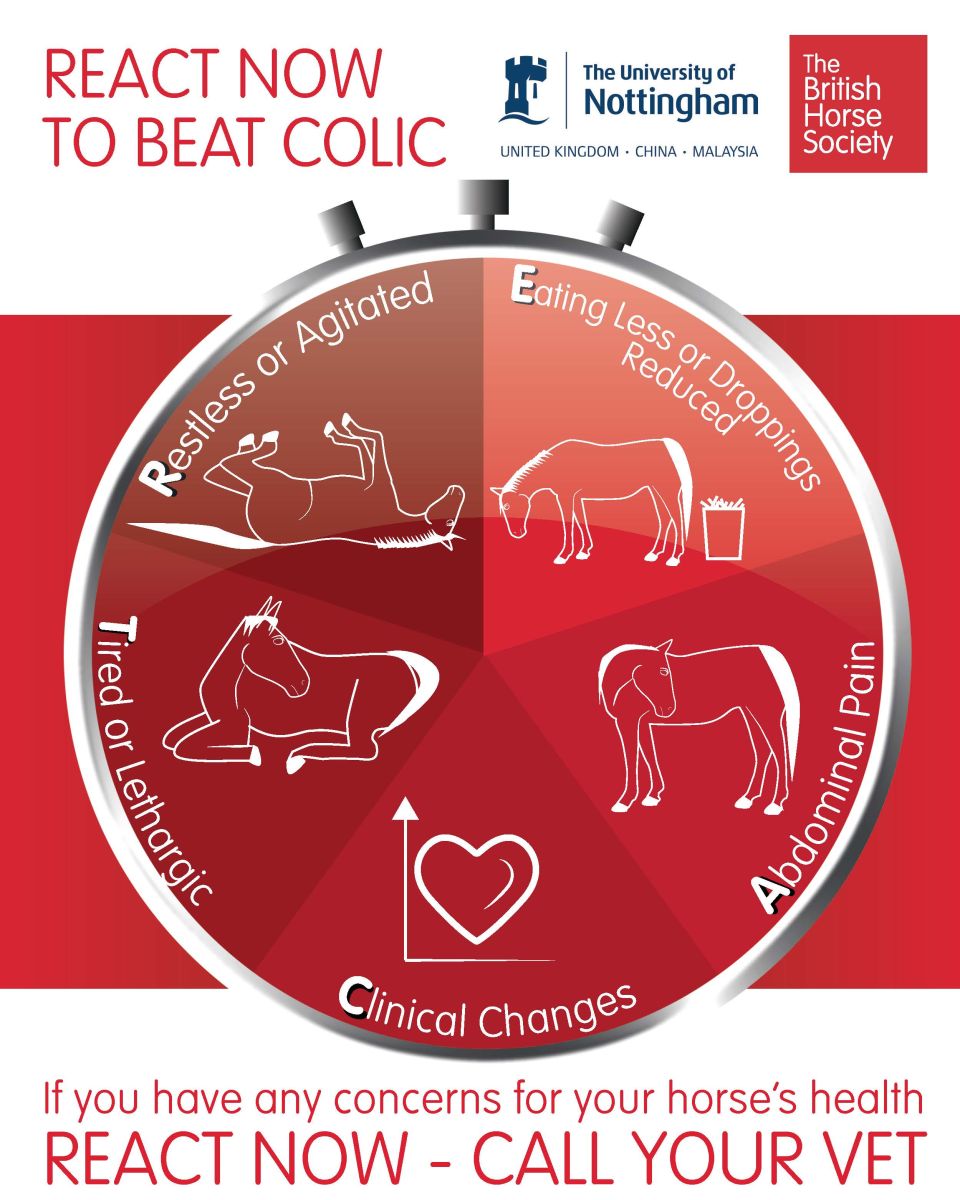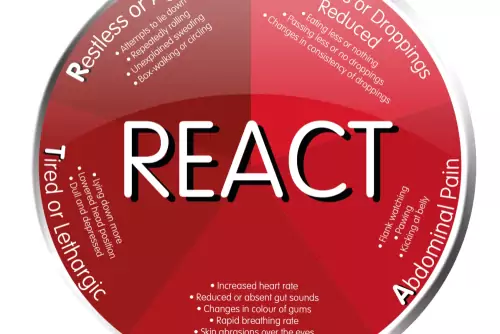As we to draw a close on the 2024 #ColicAwarenessWeek, here is a recap of the subtle signs of colic and what to look out for. We'll also give you links to the The British Horse Society website on how to get to know your horse's 'normal', what you can do to help prevent colic and finally, to reiterate if you are concerned, to always call us.
If there is a change in your horse's normal behaviour or parameters (temperature, pulse rate, respiratory rate - TPR) and you suspect something is not right, then think 'REACT'. Are they:
![]()
![]() Restless or agitated
Restless or agitated
![]()
![]()
![]() Eating less or droppings reduced
Eating less or droppings reduced
![]() Abdominal pain
Abdominal pain
![]()
![]() Clinical changes
Clinical changes
![]()
![]() Tired or lethargic
Tired or lethargic

To help reduce the risks of colic these steps can be helpful:
![]() A diet composed of predominantly forage
A diet composed of predominantly forage
![]() Have a testing-led deworming plan in place
Have a testing-led deworming plan in place
![]() Regular dental checks
Regular dental checks
![]() Gradual stabling for winter
Gradual stabling for winter
![]() Healthy exercise regime
Healthy exercise regime
Read up on how to get to know your horse's 'normal', more on the steps you can take to help prevent colic, as well as emergency decision making and to download a free emergency care plan
And finally, if you are concerned, call us. In many cases your horse will be able to be treated at home, but in more severe or critical cases, being prepared to act quickly is essential if they need to be referred into our hospital or for surgery. We have teams on 24 hours a day, 7 days a week for emergencies and are always on the end of a phone.

